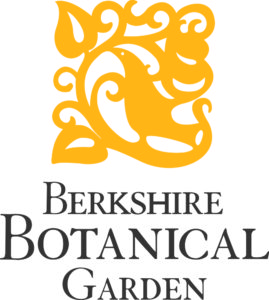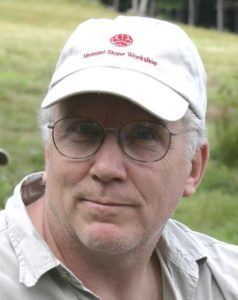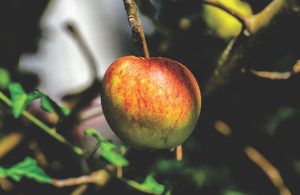For me, it’s All About the Workshops at the Garden’s Harvest Festival
Free workshops at Berkshire Botanical Garden’s 85th annual Harvest Festival include traditional New England cider making, growing garlic, beekeeping, and cheesemaking.
By Thomas Christopher
On Saturday and Sunday, October 12 – 13 from 10 a.m. – 5 p.m., the Berkshire Botanical Garden will be entertaining the public at its 85th annual Harvest Festival. The entire 20-acre Garden campus will be brimming with children’s activities, pony and hayrides, and games, and all ages will find delight in the live entertainment, over 100 regional artisan vendors, farm market, and tag sale. Gardeners in particular won’t want to miss the plant sale.
I’m going because I don’t want to miss the workshops, which are free with Festival admission. Ron Kujawski, a celebrated Berkshire gardener and garden writer, will be talking about growing garlic at 11:00 a.m. on Saturday. I’ve always found this to be one of the most rewarding and foolproof vegetable crops and I’m looking forward to hearing an expert perspective. Ron will also be signing and selling his book,The Week-by-Week Vegetable Gardener’s Handbook. I’m also looking forward to Chris Wellens, the Botanical Garden’s Director of Education, talk about backyard beekeeping and home cheese-making, two crafts that I have long wanted to explore. Chris will be speaking about the bees at 1:00 p.m. on Saturday and again at 2:00 p.m. on Sunday, and about cheese-making at 3:00 p.m. on Saturday and at 11:00 a.m. on Sunday. And then there’s the talk I most want to hear: Dennis Picard’s disquisition on traditional New England cider-making on Sunday at 1:00 p.m.
Dennis Picard possesses a rare combination of knowledge practical and theoretical. A historian who delves into original documents and artifacts, he has actually practiced the crafts he describes as a staff-member and director of a variety of living history museums, including old Sturbridge Village in Sturbridge, Massachusetts and Hancock Shaker Village in Hancock, Massachusetts, among many others. Because making hard cider is a passion of mine – my wife Suzanne and I pick and press apples every fall, and ferment and bottle the resulting juice – I called Dennis for a preview.
He began by correcting my terminology. “Cider” is by definition alcoholic; the fresh juice we get at farm stands is more correctly known as “sweet cider” and, in Massachusetts at least, is typically labeled as such. Cider, then, the fermented product, was according to Dennis a near-universal rural mainstay in New England from the time the first apple trees imported by pioneers matured and gave fruit, until the Temperance Movement took hold in the 1840s. Even afterwards it persisted as a popular beverage until the passage of the Eighteenth Amendment and the imposition of Prohibition in 1920 made the trade in alcoholic beverages illegal.
Who drank cider, I asked? Everyone, Dennis replied. It was the Poland Spring Water of the day, and men, women and children all drank it. Every rural town had several cider mills to process the apples that farmers grew and picked. How much, then, would a typical farm family make each fall? That varied, according to Dennis, but by consulting estate records he has been able to deduce that the average production was about ten barrels of 32.5 gallons each. You’d need the help of the whole family, children included, I realized, to consume that in just a year.
Our conversation revealed to me former riches in apples incomprehensible today. New Englanders pride themselves on our locally produced fruit, but whereas a dozen or so varieties account for virtually all our contemporary orchard production, in the 19th century, Dennis explained, Massachusetts alone grew some 3,700 different apples.
With visions of a lost pomological treasure, I will be there to hear the rest of what Dennis Picard has to say on Sunday, October 13th at the Berkshire Botanical Garden’s 85th Annual Harvest Festival.
Proceeds from this event benefit the Garden’s horticulture and education programs. Admission $7 for adults; children under age 12 are admitted free of charge. Parking in BBG lots is free. Save time in line: advance admission sales are available through October 9 through the Garden’s Visitor Center, open daily 9 – 5.
5 West Stockbridge Road, Stockbridge, MA 01262

 Thomas Christopher is the co-author of “Garden Revolution” (Timber Press, 2016) and is a volunteer at Berkshire Botanical Garden. berkshirebotanical.org Be-a-Better-Gardener is a community service of Berkshire Botanical Garden, one of the nation’s oldest botanical gardens in Stockbridge, MA. Its mission to provide knowledge of gardening and the environment through 25 display gardens and a diverse range of classes informs and inspires thousands of students and visitors on horticultural topics every year. Thomas Christopher is the co-author of Garden Revolution (Timber press, 2016) and is a volunteer at Berkshire Botanical Garden. berkshirebotanical.org.
Thomas Christopher is the co-author of “Garden Revolution” (Timber Press, 2016) and is a volunteer at Berkshire Botanical Garden. berkshirebotanical.org Be-a-Better-Gardener is a community service of Berkshire Botanical Garden, one of the nation’s oldest botanical gardens in Stockbridge, MA. Its mission to provide knowledge of gardening and the environment through 25 display gardens and a diverse range of classes informs and inspires thousands of students and visitors on horticultural topics every year. Thomas Christopher is the co-author of Garden Revolution (Timber press, 2016) and is a volunteer at Berkshire Botanical Garden. berkshirebotanical.org.


